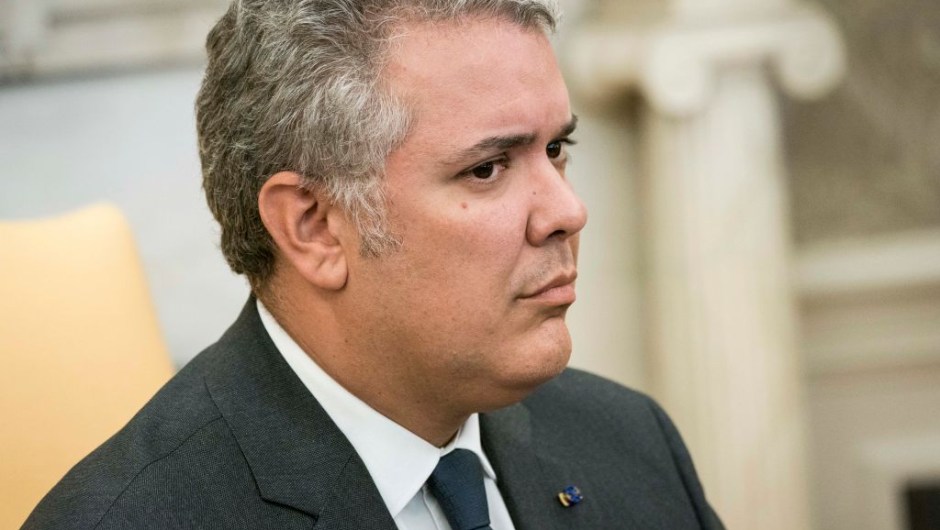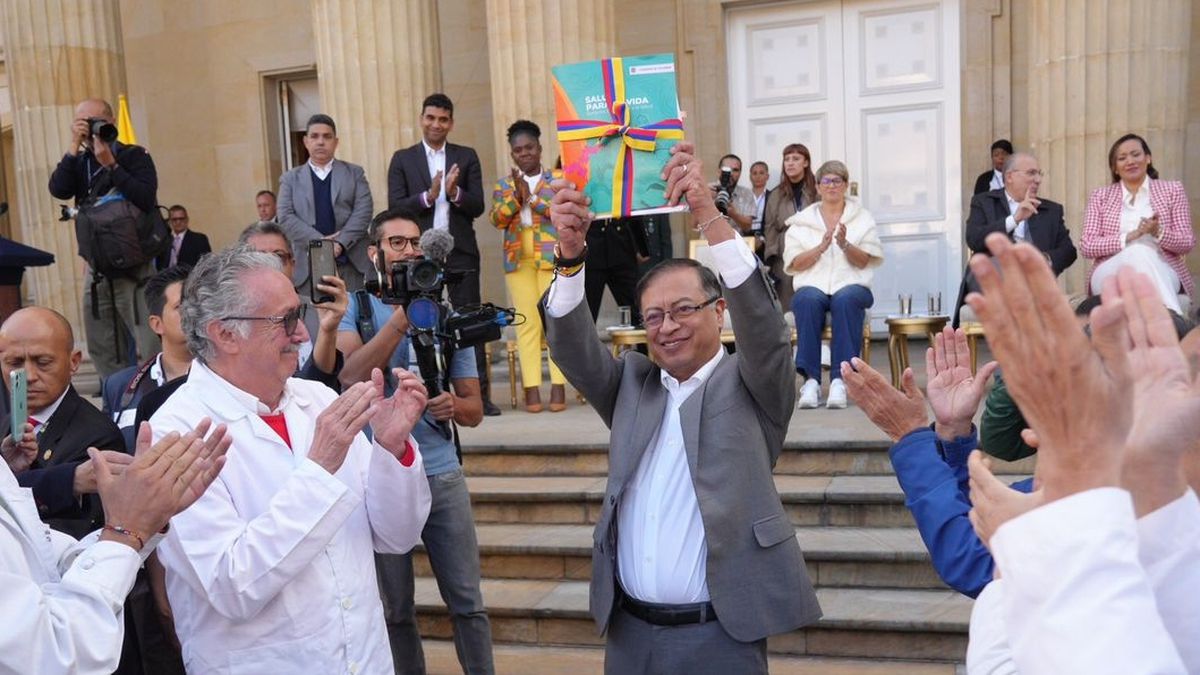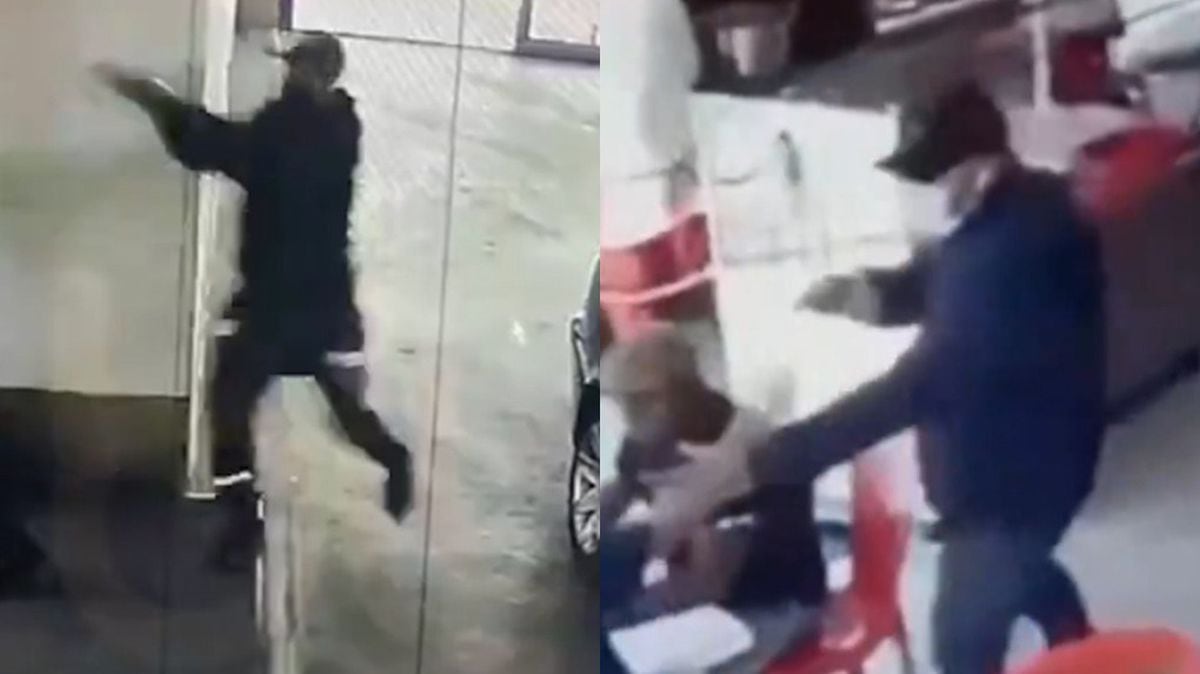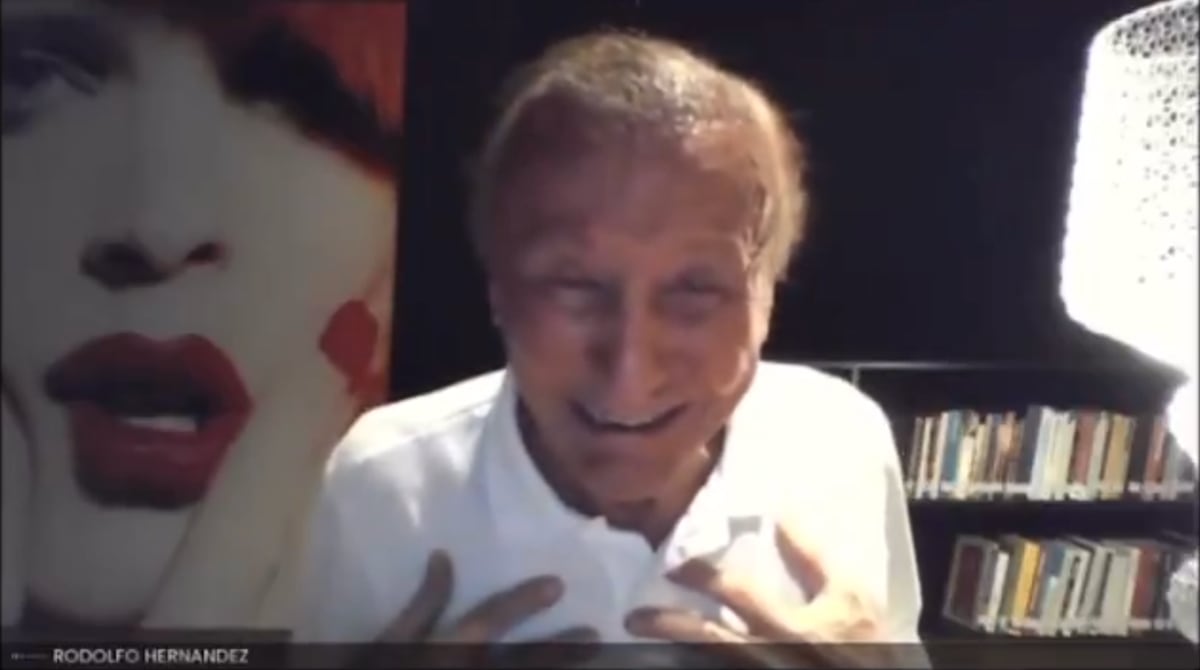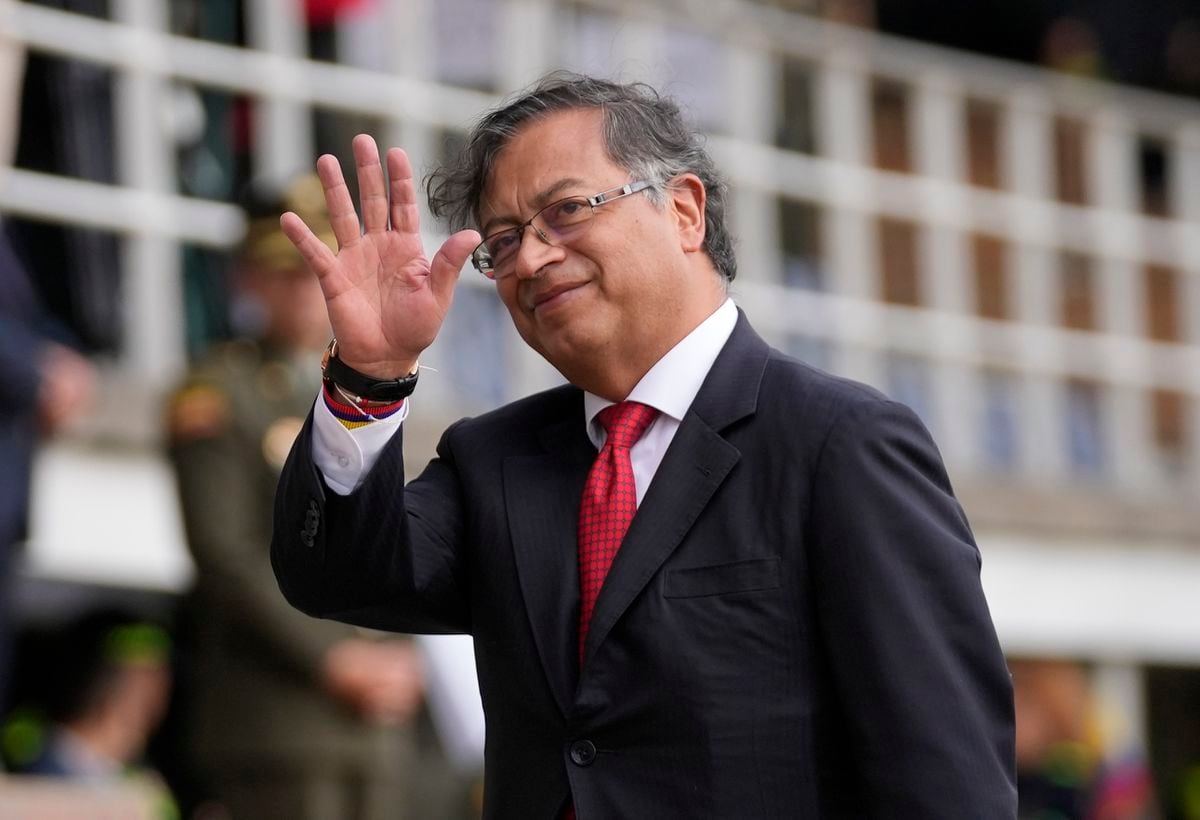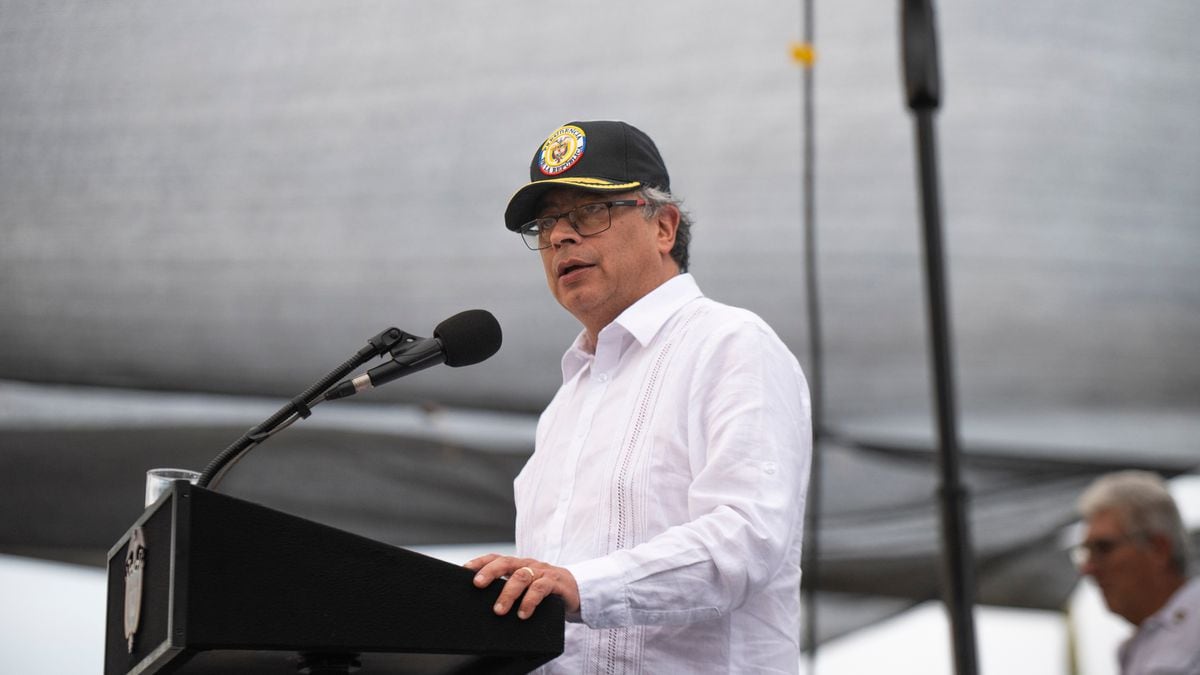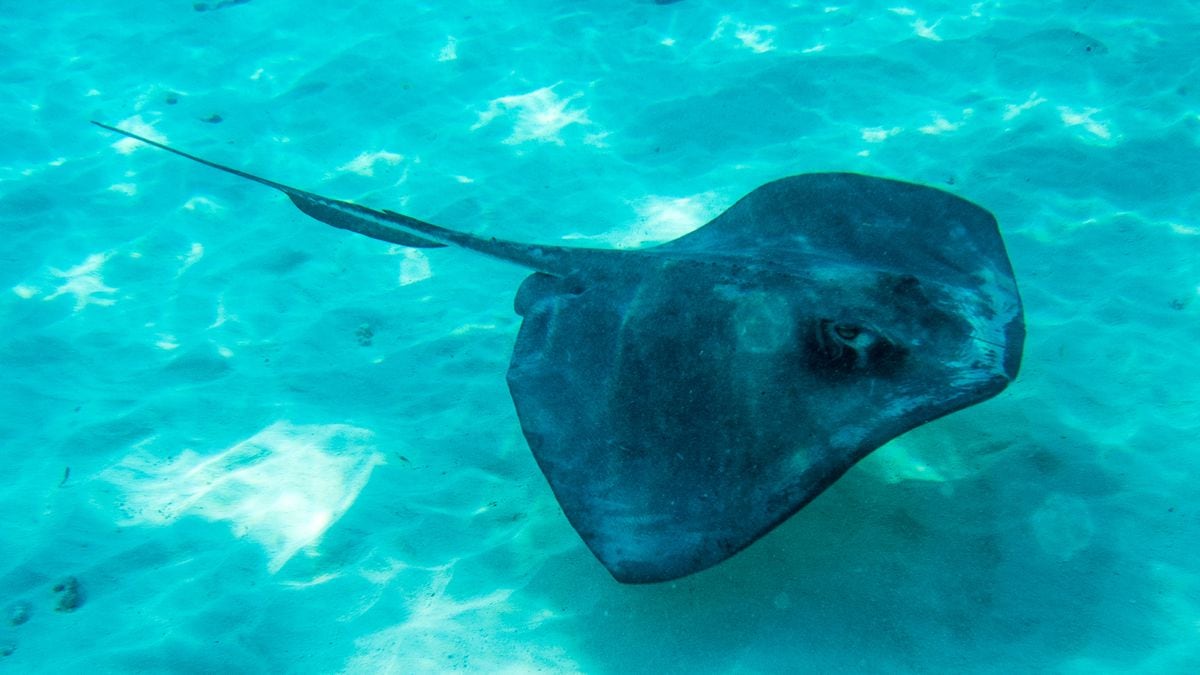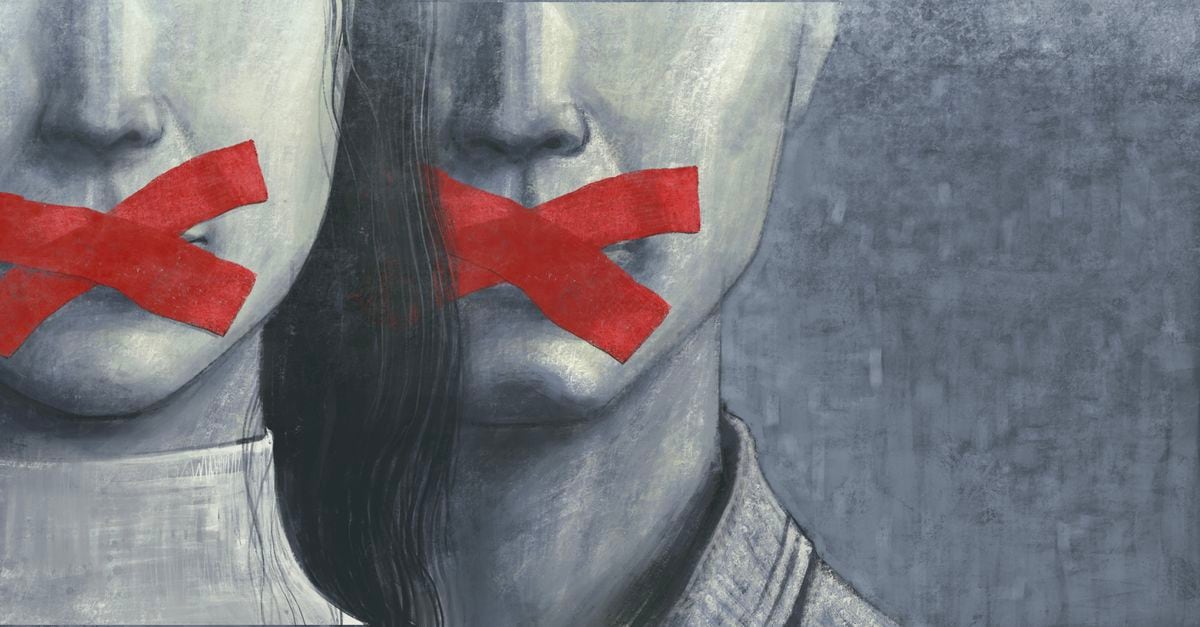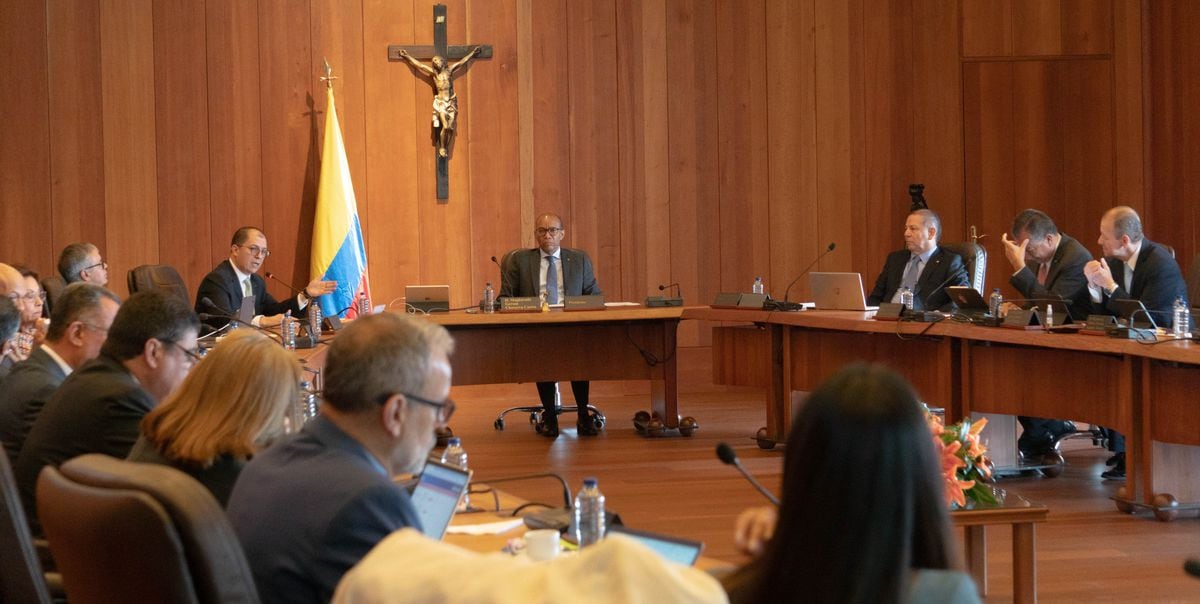File photo.
The President of the Republic of Colombia, Iván Duque Márquez, speaks to the press during a meeting with the President of the United States, Donald, in the Oval Office of the White House on March 2, 2020 in Washington.
(Credit: Sarah Silbiger/Getty Images)
(CNN) --
The government of President Iván Duque is in its final stretch.
There are only a few months left before Duque, who reached the most important position in the country despite his little experience in public office, leaves office and Colombia enters a new era.
CNN consulted analysts to outline how the country reaches a new mandate with important challenges such as the implementation of the post-conflict, combating the violence that is on the rise and getting the country out of the social and economic crisis.
Duque (Bogotá, 1976) will leave his post on August 7.
After four years in the Presidency of Colombia, Duque leaves a country with serious acts of violence, the unresolved phenomenon of the murders of social leaders and enormous social discontent that was evident during years of protests against his Government, although with some policies that can Give it a break at the end of the mandate: the management of the pandemic and the statute of the protection of migrants.
"The country is in an absolutely dramatic situation due to the security problems that exist, both in what has to do with the armed conflict and in what has to do with security in the cities," he told CNN en Español the political analyst Camilo Prieto, associate professor of the Department of International Relations of the Pontificia Universidad Javeriana de Bogotá, on the presidency of Duque, between 2018 and 2022.
According to Prieto, "there is absolutely no reform, no policy that one can highlight at this time" in the Duque government.
Prieto points out, among other problems, the breach of the peace agreement with the demobilized FARC guerrilla, the emergence of armed groups in rural areas, the murder of social leaders, in addition to the social crises accentuated by the coronavirus pandemic.
advertising
The post-conflict during the Government of Iván Duque
One of the most challenging situations that Duque leaves behind is a Colombia marked by violence.
Between 2019 and 2022, criminals assassinated 835 social leaders, according to figures from the Institute of Studies for Development and Peace (Indepaz), as well as hundreds of ex-combatants of the demobilized FARC guerrilla.
"The peace agreement was not implemented in a comprehensive manner and that is allowing the resurgence of violence in a serious way, especially the recomposition of armed groups and a resurgence of drug trafficking," Camilo González Posso, director of Indepaz, an organization, told CNN. non-profit organization that investigates acts of violence in the country.
Although Duque has said that he defends "peace with legality", what has resulted in these four years is what analysts describe as a breach of the agreements which, according to González Posso, has led to the repetition of forms of violence such as before agreements.
"In that sense, it is like the worst balance of the government that has offered a simulation to sell an image at the international level that it respects peace, but at the same time the substitution of peace for a security policy for a new war," he says. Gonzalez Posso.
According to a 2021 Human Rights Watch report, many of those who submitted to the will for peace are at the mercy of violence and the Executive's protection mechanisms present "serious deficiencies."
"This government chose to comply with the agreement with the FARC halfway," Prieto said.
"This meant that a huge number of people who were willing to demobilize in principle, FARC guerrillas, returned to the ranks of what are now dissidents, to the ranks of groups that used to fight, such as paramilitary groups of gangs organized criminals."
"Without a doubt, these groups, both dissidents (from the FARC) and criminal gangs have continued to recruit people," adds Prieto.
"The assassination of social leaders does not stop, the massacres continue, the presence of these groups continues in a number of places where the State supposedly had to be present and did not."
social crises
A social crisis erupted in 2019 with the failed tax reform that brought millions of people to the streets in various cities in the country.
Although the Duque administration withdrew it, this was an opportunity for the demonstrations to be expanded for more underlying reasons, in a country that was not only besieged by violence, but also by social inequality.
"It is the greatest expression of rejection of what were the anti-democratic social and media policies, the handling of this government of the public order situation and the police response to the protests as if it were a war situation," González Posso said.
According to the analyst, the response given to the social crisis has been one of inequity and "favoring the most powerful sectors," saying that this may be the answer to the crisis.
"But what we have had is a scenario of inequality and extreme poverty, informality, dignified desperation," he says.
And although the government has said that the pandemic accentuated social problems, Prieto says that without the pandemic there would not have been a substantial improvement in the social situation either.
"Duque's economic policy was never focused on it," Prieto said.
"From the beginning, Duque did not have a job creation policy. Duque did not have a policy to formalize informal employment because it did not have a productive development policy that would generate more jobs in the manufacturing, media or service sectors."
During his government, inflation went from 3.23% in September 2018 —the first measurement of his administration— to 9.23% in April 2022, according to data from the Banco de la República.
And the price of the dollar went from 2,898 to 3,967 pesos on April 28.
The dollar peaked in March 2020, reaching 4,153 pesos, according to historical data from the central bank.
The National Administrative Department of Statistics (DANE) reported that the poverty rate increased from 36% in 2019 to 42.5% in 2020. For 2021 the figure was 39.3%.
And a 2020 DANE study reported that the number of Colombian families that eat less than three times a day tripled since the start of the pandemic.
Sociology and History professor José Alejandro Cifuentes previously told CNN that the economic situation facing Colombia is bleak and entangled with its history of civil war and inequality.
"We are in a very serious situation regarding access to higher education, to employment, and we are facing a situation of high informal employment, which is the only space left for these young people," Cifuentes said in relation to the young Colombians who They took to the streets to express their frustrations and concerns.
Military actions and captures
Violence in the country has not only been at the hands of illegal armed groups.
During Duque's mandate, attacks by the Army on civilians have been denounced several times, which the Government has justified by saying that they are legitimate targets because they hide "terrorists."
One of those scandals cost his first defense minister, Guillermo Botero, his job in November 2019, when it was reported that eight minors died in an Army bombardment against criminal organizations in Caquetá, in the west of the country.
On two occasions, congressmen debated the motion of censure of the outgoing Minister of Defense, Diego Molano: first in May 2021 after the denunciations of abuses by members of the Public Force in the protests (and after the bombing of a guerrilla dissident camp in which children died in March of that year), and then in May due to a military operation in Putumayo in which civilians died, including a minor.
None of the motions succeeded.
Also during the Duque administration, another scandal was uncovered related to alleged orders from Army commanders, General Nicasio Martínez, to high-ranking officers so that, according to
The New York Times
, the battalions double "the number of criminals and rebels who kill, capture or forced to surrender in battle".
Martínez was removed from his position.
At that time, Martínez said he was "ready to contribute with transparency and with the peace of mind of having always acted within the framework of the law."
The general maintained at that time that there is no investigation against him for this or other cases in any judicial instance and stated that the orders that have been given are to improve "operational results."
González Posso says that the Duque government implemented a security doctrine in which it deals with "social problems and political problems and nonconformity" with a strategy of internal war.
"It's like going back to the past, as if the future new normality were actually a return to the old expressions. Then of the very deep social crisis," says González Posso about the set of crises in the country, which include drug trafficking.
In October 2021, Duque dealt a heavy blow to drug trafficking with the capture of the leader of the Clan del Golfo, a dangerous criminal organization, Dairo Antonio Úsuga, alias Otoniel.
The president compared his capture to the fall of drug lord Pablo Escobar.
Then, in May, Otoniel was extradited to the US, which many criticized for taking away the truth to the detriment of the victims.
But Otoniel's extradition only generated more violence and days later the Clan del Golfo carried out an armed strike in at least 10 of the country's 32 departments.
That same week, Paraguayan anti-drug prosecutor Marcelo Pecci was shot dead on a private beach in Cartagena.
unfavorable
Duque is, until now, the president with the highest unfavorable score for almost 30 years, according to the Invamer country survey that measures the favorability of presidents since 1994.
Duque's highest disapproval has reached 76% in April and May 2021. By March, Duque's approval was at 23% and his disapproval was 73% in that poll.
And furthermore, despite having been chosen by former President Uribe as a candidate and representative of his political party, his government has moved away from the most conservative branch of Uribismo, leaving him in a difficult political scenario, where he seems to be governing alone.
"Duque gets himself elected with Uribismo, but he governed with his friends," political analyst Rafael Nieto Loaiza told CNN en Español.
"And he abandoned the possibility of governing with Uribismo. And that is part of the resentment of the Uribista base, even with (former) President Uribe."
The lights of the Government of Duque
In his mandate, Duque had to face two particular situations that, according to the opinion of analysts, he got ahead and can be recognized in the midst of so much governance crisis.
One of these was the covid-19 crisis.
His mandate was crossed by a unique pandemic in a century that forced the country to close for months, and contrary to what his critics predicted, the Executive complied with its measures to control covid-19 and have millions vaccinated .
"There was a lot of skepticism. It was said that (the vaccination plan) was going to be a failure, that they had negotiated badly with the laboratories," said Mauricio Jaramillo Jassir, professor of international relations at the Universidad del Rosario.
"But the goals that the Government had proposed to me with the National Vaccination Plan ended up being fulfilled, and Colombia very quickly had immunization indicators above the average in Latin America," he added.
According to Our World in Data, as of May 18, Colombia had just over 69% of people fully vaccinated, and about 13% of people partially vaccinated.
The vaccination average of South American countries is 74.5% of people fully vaccinated, and 9.6% of people partially vaccinated.
And on the other hand, according to Prieto, there is the statute of protection for Venezuelan migrants, in the midst of one of the worst humanitarian crises of today that led almost a million Venezuelans to flee their country.
"It is the only policy that I think makes a difference, it has been an excellent policy, it has been a model policy for the whole world, not only for Latin America, but for the world."
"And this status of protection of migrants has opened up a number of possibilities for Venezuelan migrants," he adds.
For the rest, Prieto points out, "it is impossible to record a single policy that one says: 'this transformed something'" in Colombia during the Duque presidency.
Ivan Duke

